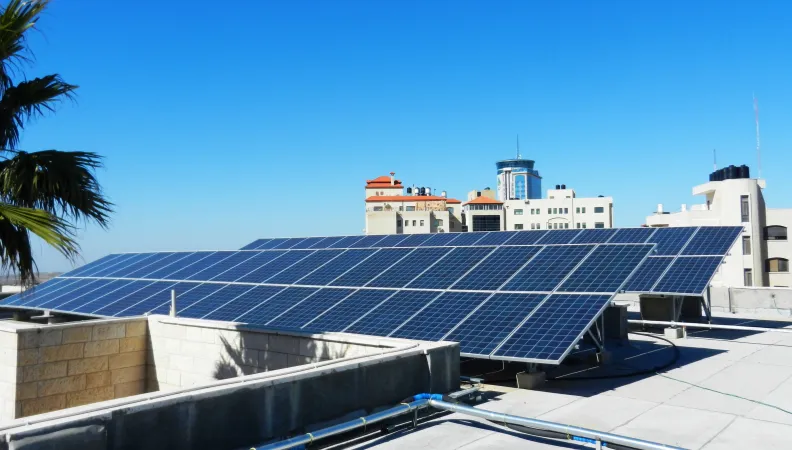Share the page
Support for the implementation of the energy efficiency policy of the Palestinian Authority (EE)
Project


-
Project start date
-
Status
Completed
-
Estimated date of project termination
-
-
Project financing date
-
-
Financing duration
-
3 years
-
Type of program
-
FFEM
-
Global financing amount
-
5160000 €
-
FFEM financing amount
-
1000000 €
-
Project lead member institution(s)
-
AFD
-
Country and region
-
Africa - Multi-country
-
Type of financing
-
Grant
-
Beneficiaries
-
Palestinian Authority

Supporting the implementation of the national energy efficiency policy.
Context
The Palestinian Territories are faced with strong energy constraints relating to very high supply costs.
An initial operation, funded by the FFEM, revealed the potential for energy efficiency and raised awareness among decision-makers in preparing the implementation of operational mechanisms.
This initial phase enabled the development of a Palestinian National Energy Efficiency Action Plan (NEEAP), adopted in 2012 by the Palestinian Authority for energy.
Description
Innovative financial tools developed:
- Revolve funds for public buildings: the project enable a fund to be set up to invest in energy efficiency solutions in public buildings. The aim of these measures will be to lighten the financial burden of power currently being paid by the Ministry of Finance (MoF). The initial contribution of the fund be made by the AFD, and subsequent to this, for each project, the MoF provide regular funding for the amount corresponding to a set percentage of the savings made until the initial investment has been reimbursed.
- Encourage private sector investment: the project offer’s private operators a subsidy to support a traditional loan taken out with the local banking sector. The aim of this mechanism is to encourage the private sector to invest in energy efficiency measures. The amount of the subsidy for each project is calculated as the equivalent of a drop in interest rates.
Outcomes
- The environmental impact of the project, which is enable the reduction of around 15,000 t eq CO2 per year, 25 t SO2 and 30 t NOx, according to the environmental study carried out, the reduction on energy costs have a huge economic impact: by reducing the budgetary pressure affecting the Palestinian Authority, increasing the competitiveness of the Palestinian economy (reduction in production costs for local companies), while encouraging the emergence of a market (energy equipment and services). In terms of quality of service, the overall limiting of energy consumption is also enable electricity suppliers to improve their quality of service (fewer power cuts at peak times) and, finally, this project moves towards greater energy autonomy for the country.
- Strong institutional and social impact through the strengthening of local skills within the PEA and interministerial collaboration, campaigns to raise awareness of energy efficiency among the people. The involvement of banks in the process represents a significant means of support for the private sector.
- Introduction of innovative financial tools such as revolving funds, ensuring the sustainability of the project and measures for encouraging private sector support pave the way for a future AFD credit line in this area.
Sustainable Development Goals
ODD11 Sustainable cities and communities



